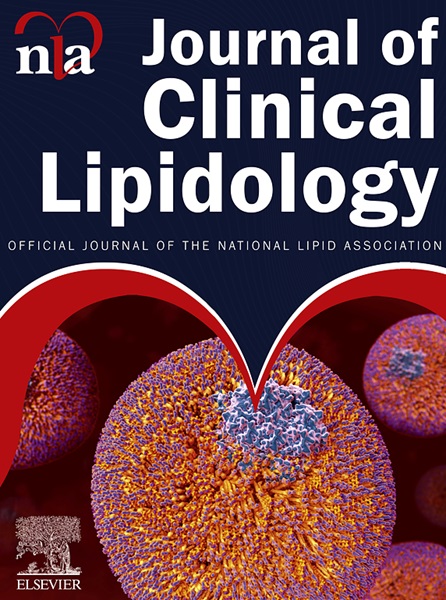Attitudes and barriers to lipoprotein(a) testing: A survey of providers at the University of Pennsylvania Health System
IF 3.6
3区 医学
Q2 PHARMACOLOGY & PHARMACY
引用次数: 0
Abstract
Guidelines recommend checking lipoprotein(a) [Lp(a)] levels in patients at high-risk for cardiovascular disease, with more recent recommendations advocating for universal screening in all adults. A brief electronic survey was distributed to select groups of University of Pennsylvania Health System (UPHS) providers, including Internal Medicine and Cardiology physicians and advance practice providers, to understand the current attitudes and barriers to testing for Lp(a). Of the 126 survey respondents, only 31% answered that they test for Lp(a) regularly in their practice. Presence of ASCVD and a family history of ASCVD were the most common reasons for testing. Most survey respondents (69%) replied that they do not currently check Lp(a) levels in patients. The most common reasons provided included lack of familiarity with Lp(a), insurance/ billing concerns, lack of clinical trial outcomes data, and lack of available pharmaceutical interventions. Results from ongoing clinical trials of novel Lp(a)-lowering therapies, if successful, may address provider hesitation toward Lp(a)-testing, but there remains a large gap to fill in awareness of Lp(a).
脂蛋白(a)检测的态度和障碍:宾夕法尼亚大学医疗系统医疗服务提供者调查
指南建议检查心血管疾病高危患者的脂蛋白(a)[Lp(a)]水平,最新的建议主张对所有成年人进行普遍筛查。我们向宾夕法尼亚大学医疗系统(UPHS)的部分医疗服务提供者(包括内科和心脏病科医生以及高级医疗服务提供者)发放了一份简短的电子调查问卷,以了解他们目前对脂蛋白(a)检测的态度和障碍。在126名调查对象中,只有31%的人回答说他们在诊疗过程中定期检测脂蛋白(a)。存在 ASCVD 和 ASCVD 家族史是最常见的检测原因。大多数调查对象(69%)回答说,他们目前没有检测患者的脂蛋白(a)水平。最常见的原因包括不熟悉脂蛋白(a)、保险/账单问题、缺乏临床试验结果数据以及缺乏可用的药物干预措施。正在进行的降低脂蛋白(a)的新型疗法临床试验的结果如果成功,可能会解决医疗服务提供者对脂蛋白(a)检测的犹豫不决,但在对脂蛋白(a)的认识方面仍有很大的差距需要填补。
本文章由计算机程序翻译,如有差异,请以英文原文为准。
求助全文
约1分钟内获得全文
求助全文
来源期刊
CiteScore
7.00
自引率
6.80%
发文量
209
审稿时长
49 days
期刊介绍:
Because the scope of clinical lipidology is broad, the topics addressed by the Journal are equally diverse. Typical articles explore lipidology as it is practiced in the treatment setting, recent developments in pharmacological research, reports of treatment and trials, case studies, the impact of lifestyle modification, and similar academic material of interest to the practitioner.
Sections of Journal of clinical lipidology will address pioneering studies and the clinicians who conduct them, case studies, ethical standards and conduct, professional guidance such as ATP and NCEP, editorial commentary, letters from readers, National Lipid Association (NLA) news and upcoming event information, as well as abstracts from the NLA annual scientific sessions and the scientific forums held by its chapters, when appropriate.

 求助内容:
求助内容: 应助结果提醒方式:
应助结果提醒方式:


